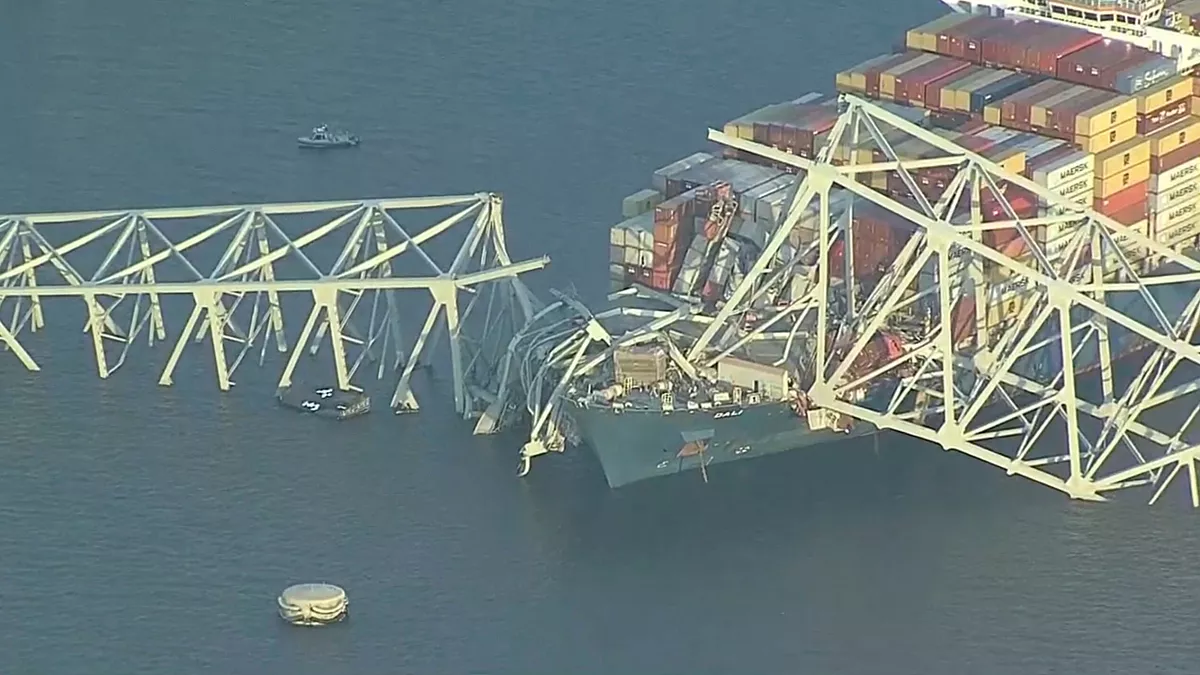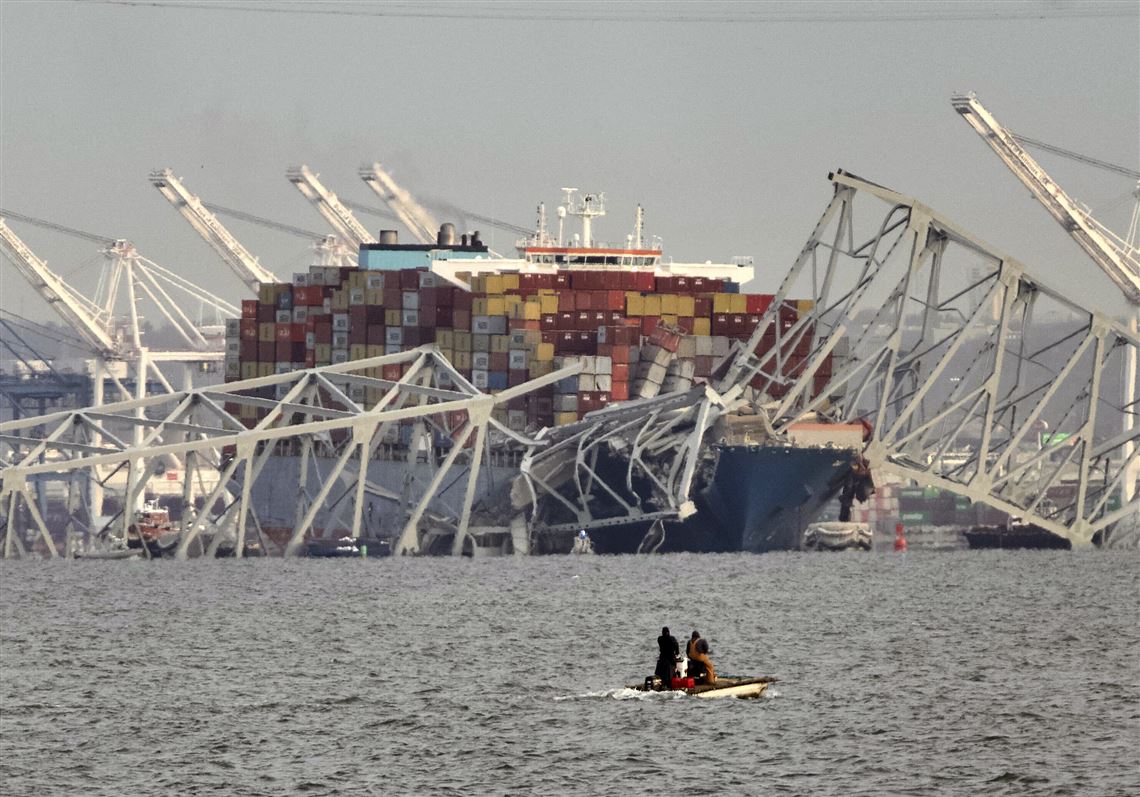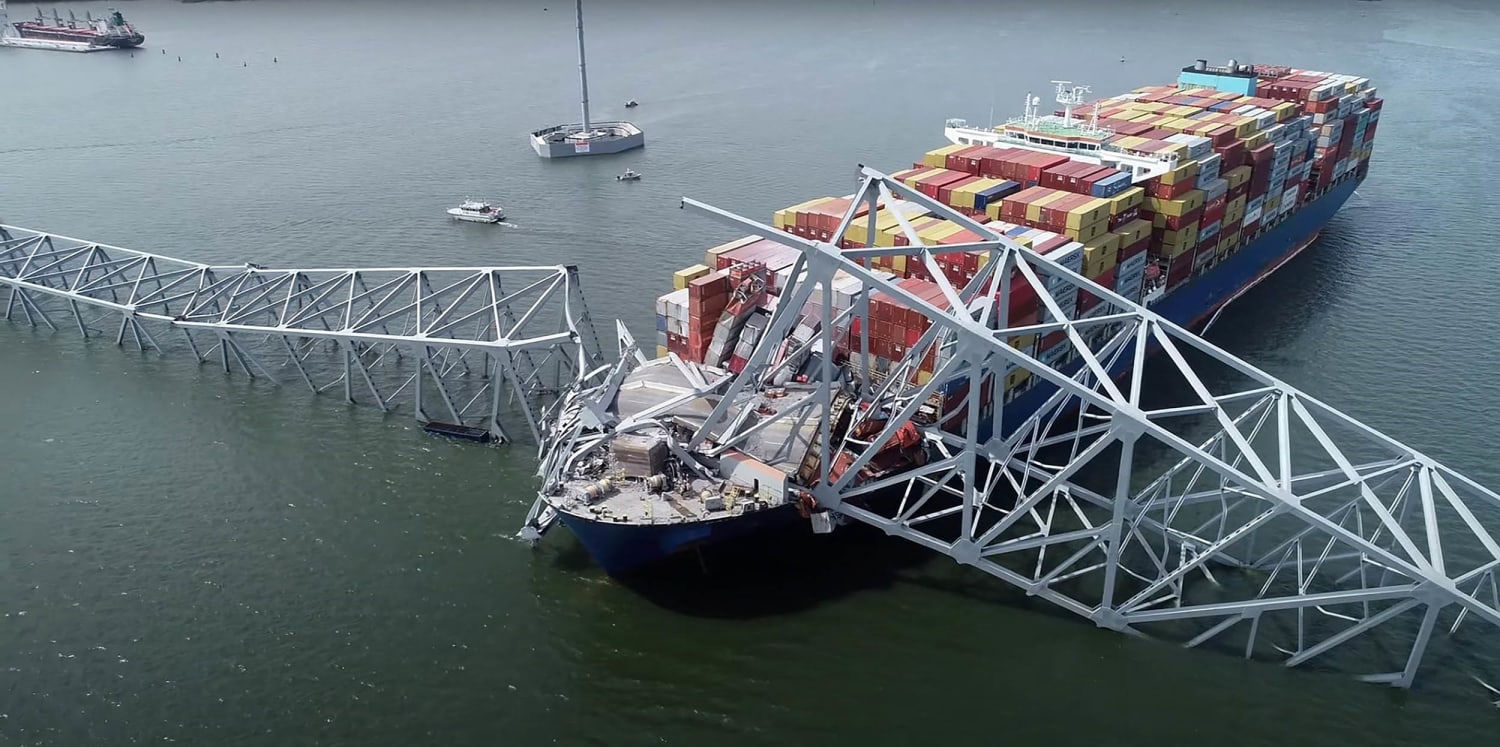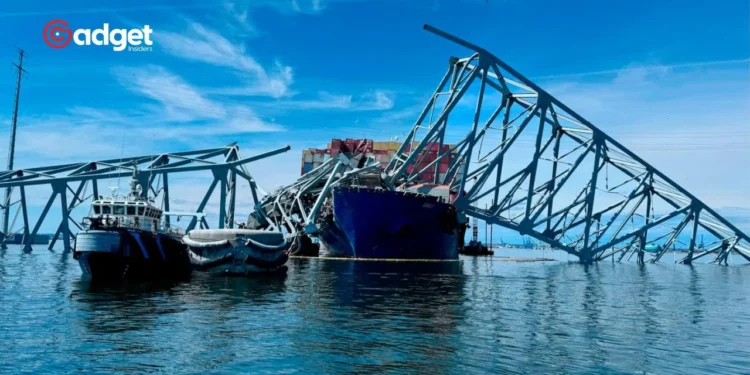In a dramatic incident that has left the Francis Scott Key Bridge in ruins, Maryland is on the brink of receiving a substantial $350 million insurance payment. This comes in the wake of a catastrophic event in late March when a Singaporean-flagged container ship, the Dali, collided with the bridge after losing power.
This incident has not only caused significant structural damage but has also had a profound impact on local and national operations, particularly affecting the Port of Baltimore.

Henry Daar, the head of property claims for North America at WTW, the broker for Maryland’s policy, confirmed the upcoming payment from insurer Chubb. This payout is critical as it represents the policy’s maximum coverage limit for such disasters.
Remarkably, the funds are being released ahead of schedule, a strategic move considering the lengthy timeline anticipated for the construction of a new bridge.
A Closer Look at the Impact and Ongoing Recovery Efforts at Maryland
The collapse of the bridge on March 26 has led to extensive and costly cleanup operations. To date, 3,000 tons of debris have been cleared, yet an estimated 50,000 tons remain, necessitating a significant and coordinated effort.
Over 350 personnel, encompassing both uniformed and civilian workers from various federal, state, and local agencies, have been mobilized to Baltimore to support these efforts. Additionally, 553 contract specialists are engaged in critical tasks including diving, crane operations, and vessel management.
“We don’t need your favors. We need you to step up and take leadership in this moment.” Maryland Governor @iamwesmoore’s message to Republican leaders in wake of the Baltimore bridge collapse. pic.twitter.com/q7tQnsGYZV
— The Weekend on MSNBC (@TheWeekendMSNBC) March 31, 2024
This massive undertaking has temporarily disrupted operations at the Port of Baltimore, trapping ships and severely hampering commerce. However, the reopening of four temporary channels has somewhat alleviated the congestion, allowing for a limited resumption of ship traffic. Since the reopening, 171 commercial vessels have navigated these alternate routes.

Legal and Financial Repercussions Unfold
The city of Baltimore, Maryland has taken legal action against Grace Ocean Private Limited, the owner of the Dali, and Synergy Marine PTE LTD, which managed the vessel. The lawsuit accuses both entities of employing an “incompetent crew” that lacked the necessary skills and training, a factor that might have contributed to the disaster.
The specifics of the damages sought remain undisclosed, but this legal move underscores the city’s intent to hold responsible parties accountable.
In addition to the city’s claims, Chubb, the insurer, may seek reimbursement through legal means for the funds it will dispense to the state. This development indicates a complex web of financial and legal challenges that will likely unfold as more information becomes available and as authorities continue to investigate the exact causes of the accident.

Anticipated Developments and Future Precautions
While the immediate focus remains on recovery and legal resolutions, the broader implications of the bridge’s collapse prompt a reevaluation of safety protocols and infrastructure resilience.
With a preliminary report from the National Transportation Safety Board expected soon, stakeholders are bracing for insights that could shape future safety measures and potentially influence infrastructure policies nationwide.
The swift financial response by Chubb underscores the critical role of insurance in managing the aftermath of such large-scale disasters. As Maryland and the affected communities look to rebuild, the lessons learned from this incident will undoubtedly influence future strategies to enhance structural safety and emergency responsiveness.
This incident not only highlights the vulnerabilities in critical infrastructure but also the importance of preparedness and the ability to respond effectively to unforeseen disasters. The ongoing efforts in Baltimore reflect a robust commitment to recovery and accountability, setting a precedent for handling similar challenges in the future.










